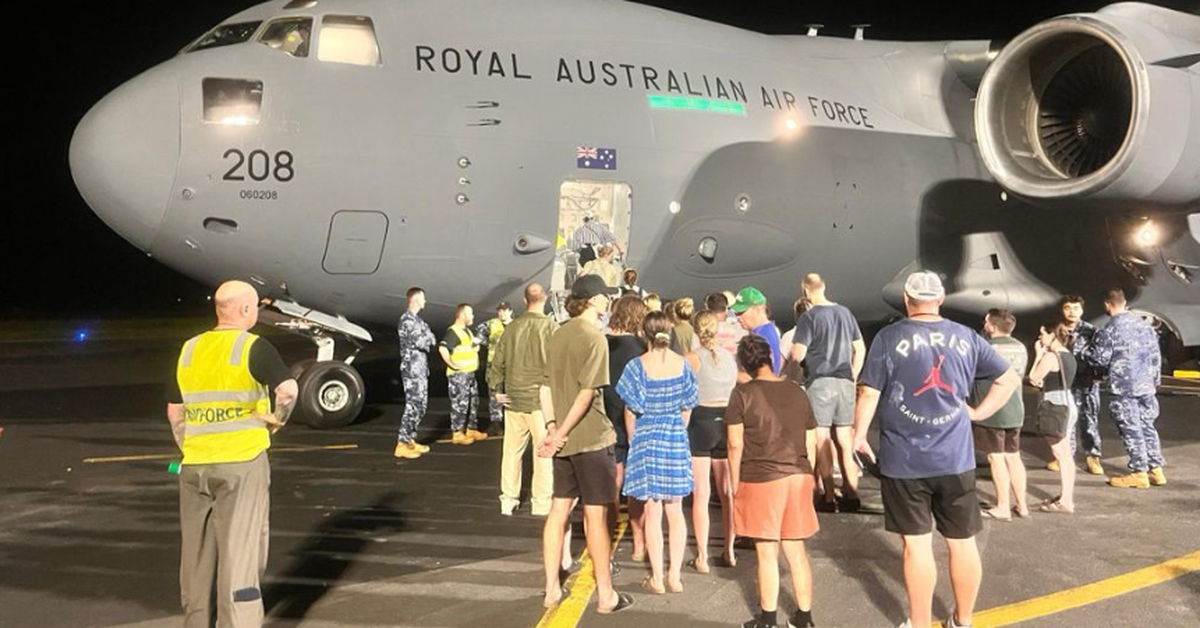Listen to Australian and world news, and follow trending topics with .
The sound of shells and harmonised voices echo around a room in the German capital of Berlin.
The sounds are part of a special ceremony that four representatives from the Ugar Island community – part of the Torres Strait Islands – are in attendance for.
The group is in Berlin to collect five sets of ancestral remains that have spent more than a century away from home.
Three of the remains have been held in Berlin’s Ethnological Museum since 1880, while the other two have been in the north-western city of Oldenburg, at its State Museum for Nature and Man.
Ugar Island representative Rocky Stephen says it’s both a sad and joyful moment.
“And no matter it was nearly a 40-hour journey to travel here, because it’s been 144 years they’ve been missed back at their home, Ugar.”
The return is part of ongoing efforts by German museums and officials to give back human remains and artefacts that were looted during colonial times.
Head of the Prussian Cultural Heritage Foundation, Hermann Parzinger, says too often scientists and travellers disregarded the dignity of the peoples they encountered.
“These ancestral remains were never meant to be here. They’re here because, during the colonial era and beyond, Europeans presumed to make other peoples and cultures the subject, or more often object, of their research — appropriating artefacts from cultures outside Europe on a scale that is almost unimaginable today and even desecrating the burial places of those communities in the process.”
Governments and museums in Europe and North America have increasingly sought to resolve ownership disputes over looted objects.
In 2022, Germany and Nigeria signed an agreement paving the way for the return of hundreds of artefacts known as the Benin bronzes by a British colonial expedition more than 120 years ago.
Australian ambassador to Germany, Natasha Smith, says this latest restitution means that 162 sets of ancestral remains have now been returned to Australia from Germany.
It also brings the total number of ancestral remains returned from countries around the world to 1700.
Ms Smith says the returns are “an extremely high priority” for Aboriginal and Torres Strait Islander communities and the government.
Mr Stephen says for his community, this is just the beginning of a long journey.
“But this day means a lot to the Ugarem-le to be connected back to them because it’s a spiritual healing journey for us and they will return back to us. To heal the part and restore what was taken away. So this is a process of healing that’s going to happen when they return back to us.”





